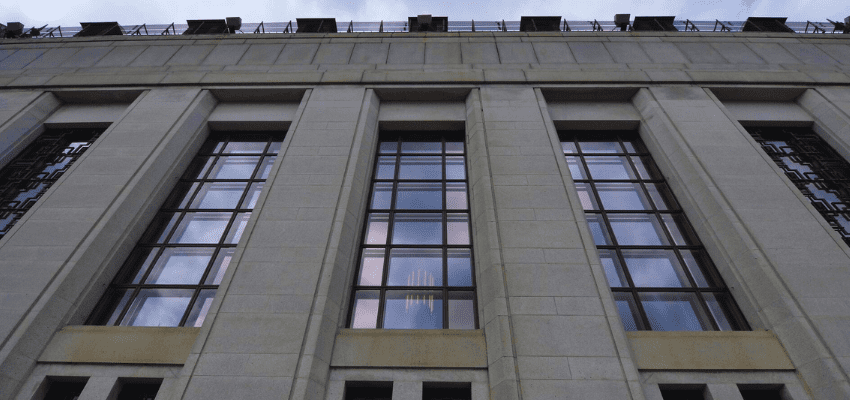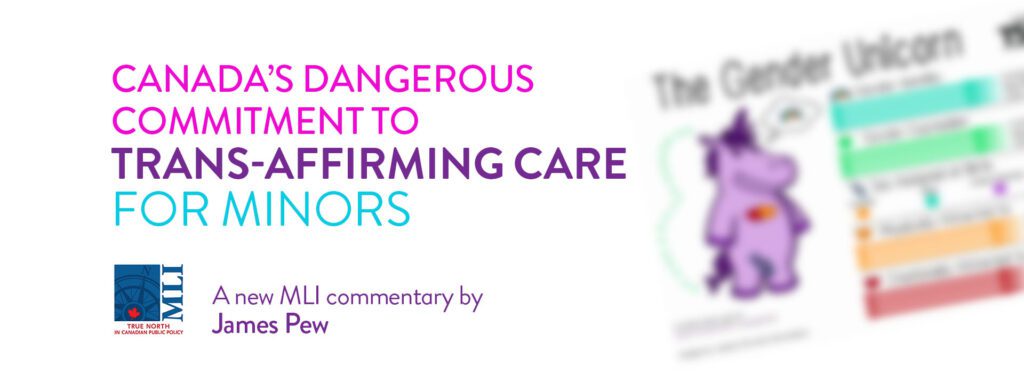This article originally appeared in the National Post.
By Stéphane Sérafin, July 24, 2024
On Friday, the Supreme Court of Canada released a shocking judgment by which it effectively granted itself ultimate authority over the legislative process in this country. Handed down in Canada (Attorney General) v. Power, a majority of judges held against the court’s own precedent that a plaintiff could claim damages for breach of a Charter right simply because Parliament or a provincial legislature had enacted a law that the court has now found to be unconstitutional.
As legal scholar Kerry Sun noted in the Post, this decision is likely to deter Parliament and the legislatures from even attempting to pass much-needed reforms in a host of areas, including in criminal law. It is also likely to increase the frequency with which these same bodies have recourse to Section 33 of the Charter of Rights and Freedoms, also known as the “notwithstanding clause” or “Parliamentary supremacy clause,” as they seek to protect their ability to meaningfully legislate in the common good. However, for this response to be effective, the Supreme Court of Canada must respect the basic architecture of the Canadian Constitution and the place that it affords to the legislative branches of government through, among other things, Section 33 of the Charter.
The concern that the Supreme Court will fail to respect Section 33 of the Charter is far from hypothetical. The court has recently given leave to appeal in the challenge to Quebec’s secularism law, better known as Bill 21. Quebec’s National Assembly has invoked Section 33 of the Canadian Charter to shield that law from the value judgments of federally-appointed judges. The bulk of the litigation pertaining to the bill thus far has therefore focused on whether courts should respect the National Assembly’s decision to invoke Section 33, as expressly permitted by Canada’s Constitution, or instead find a pretext to ignore it.
The pressure being put on courts to ignore Section 33 in the Bill 21 case is immense. Activist lawyers and academics have produced an overabundance of arguments in the hope of circumventing what they believe is an illegitimate feature of Canada’s Constitution. For instance, some have argued that an appeal to “unwritten principles” allows courts to review the use of Section 33 by Parliament and provincial legislatures. Others have argued that Section 24 of the Charter — the very provision at issue in Power, which allows courts to award damages for breaches of Charter rights — is simply not subject to Section 33 at all. Both arguments would render Section 33 moot — the first by subjecting its use to judicial review, the second by allowing the government to be sued for damages notwithstanding its use. Notably, they would also prevent Parliament and the legislatures from using Section 33 to respond to the Power decision.
To date, courts in Quebec have resisted these and other arguments in the Bill 21 case. However, courts in Saskatchewan have been more receptive. Many of the same arguments devised for the Bill 21 case have been deployed there, in the challenge to Saskatchewan’s law requiring parental notification and consent for child gender and name changes by schools. Although the Saskatchewan legislature has chosen to respond by invoking Section 33, the Saskatchewan Court of King’s Bench refused to apply established precedent and allowed this challenge to continue. The Saskatchewan Court of Appeal is scheduled to hear the appeal of that decision in September.
The decision out of Saskatchewan was already cause for concern about the direction the Supreme Court would take in the Bill 21 case. This concern has only been heightened by the court’s own decision undermining the role of Parliament and the legislatures in Power. Certainly, many of the same activist lawyers and academics who have been hoping to undermine Section 33 have interpreted Power as a decision in favour of their position. As a strictly legal matter, the claim is spurious. These are separate issues. But a court that is willing to admit one unprincipled decision that upends Canada’s Constitution for no good reason is surely liable to admit another.
It is difficult to overstate how explosive a decision overriding Section 33 would be in the Bill 21 case. Indeed, the Supreme Court now appears to be flirting with nothing less than a constitutional crisis, the likes of which have not been seen in Canada since the mid-1990s. As anyone with a cursory knowledge of Quebec politics understands, public opinion in that province is very favourable towards Section 33. Bill 21 is similarly popular, and is further perceived by many to be tied directly to Quebec’s cultural particularism. There is therefore next to no chance that Premier François Legault’s nationalist government, which is currently polling behind the sovereigntist Parti Québécois, will remain silent in the face of an overt power-grab by federally appointed judges hoping to dictate their views on these matters to the Quebec National Assembly. Moreover, if the Parti Québécois does take power, such a decision would no doubt feature front and centre in any eventual secession campaign.
It is harder to predict what the reactions to such a decision from the political branches in the rest of the country would look like. Will Saskatchewan’s legislature, which has invoked Section 33 to protect its parental notification and consent law, stand firm in the face of a judicial usurpation of its constitutional prerogative? Will the Alberta legislature, which appears to be considering the use of Section 33 in relation to its own proposed law relating to trans-identifying children and girls’ and women’s sports, do the same? Will a federal Parliament led by the Conservative party stand against the judiciary’s unconstitutional override of the Parliamentary supremacy clause, assuming that it follows through with Pierre Poilievre’s recent announcement regarding the use of Section 33 in criminal law matters?
These questions remain to be answered. However, one thing should be clear from the recent Power decision. The features of the Constitution that ensure the continued vitality of our parliamentary democracy, including Section 33, cannot safely be left to the whims of the judiciary. Safeguarding them requires political will. Quebec has long understood this, and its political opposition to judicial overreach will hopefully be enough to pull the Supreme Court back from the brink in the Bill 21 case. But it might not be. The court’s decision in Power means that the rest of the country must awaken to this reality as well, or live with the consequences. The hour is late, but there is still time to save Canada’s parliamentary democracy — provided there is the political will to do so.
Stéphane Sérafin is an assistant professor at the University of Ottawa’s Faculty of Law, Common Law Section, and a Senior Fellow at the Macdonald-Laurier Institute.







